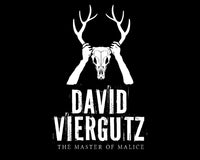Unveiling the Unique Aspects of the Horror Genre
Hello from Texas!
Today, we talk scary. After a short introduction, I’ll move into the meat of these emails which exist as an opportunity to share what I’ve learned over the years about the unique craft of writing horror.
I am a police officer and veteran. Frankly, I’ve seen some shit. I also have a unique insight into what people want, and what they will do when unhinged, when the lack of care or desire or consequences is simply out to lunch – I have seen what people can do. Horror resonates with me more than “I grew up watching horror movies and reading Stephen King.” It is personal. Just as police work is a part of me, horror is a part of me, because I understand it. I hope these emails will help you connect to and understand horror as it pertains to you.
I come with one perspective – not a rule book. Take what you want and leave the rest.
What is horror? Two lessons.
I was once told that in order to write horror I must disconnect myself from movies. When I asked why, the answer was incredible, there are no jump scares in horror literature.
The scary thing cannot jump out of the page from the dark. It cannot chase you down the hallway or spin your daughter’s head around while she vomits. Horror is in the psyche. It is internal. Personal. An emotion. Therefore, if you cannot cheaply scare the reader, there are two things you must remember. Horror is an emotion and unless you are writing true crime, you must suspend the reader’s disbelief. Tough hand, we’ll work on both.
Suggestion: For terrifying true crime, read Jack Ketchum’s The Girl Next Door, which, if you haven’t done so already it, do it now. You will see how truly depraved people can be, not a ghost in sight and truly scary.
Horror as an emotion
Horror is one of two genres that are emotions, and therefore draw something naturally from the reader. Period. Read it again if you have to. Horror is an emotion. Our bodies react to stimuli and produce emotion. Think about your best friend or your nightmarish enemy. Feel that? The stimuli is the imagery, the thought, the conjuring and reception of stimuli. It is our job as storytellers to provide the reader with stimuli worthy of an emotional response.
Regarding romance: Romance is the second of the two emotion genres. Romance readers draw feelings of elation (butterflies in the stomach), racing heart, lust and desire.
Moving on quickly, our goal in writing horror is to emotionally tax the reader using feelings like fear, dread and unease. Therefore, horror becomes personal to the reader much in the way romance is personal. Try feeling romance for someone else. It doesn’t work, it becomes our romance. The same applies for horror.
Now other genres are close but are not emotions.
Consider thrillers. To be thrilled is the purpose of the genre, but thrilling is a feeling, not an emotion. Horror is unique and therefore, skill of writing horror is unique.
I covered the definition of horror above – or mine, specifically. The definition of horror is to elicit and emotional tax from the reader in the form of dread, fear or unease. There are other terms in there as well like terror, disgust and even anxiety. For our purposes, we’ll keep it short.
Lesson two: Make reality worse than death
The second lesson I have for you is about a question. What is it like to die? Do you know? What does it feel like? What if you died right now? You have no comparison. And neither do your readers. So why do we focus on death so much in horror writing? The “horror” about death doesn’t come from the person who is gone. Their life is over, done, kaput, easy. The fact is for the dead person, life is now easy.
Who then, is life hard for?
The answer: For those who live on.
Here’s real horror. An dad having to explain to their five year old they hit the family dog with a car. The dog isn’t experiencing horror. The kid isn’t either – he’s going to feel loss.
The dad explaining it to his son must deal with the ramifications (reality) of his actions. He must tell his son, witness his face, his disbelief, comfort him, and now live with the (mistake) fact that he killed Fido. That is horror.
A rule of life – NEVER kill the dog. I’ve seen people riot over a dog.
Reality must be worse than death. In one of my favorite novels, The Troop by Nick Cutter, a group of boy-scouts are trapped on an island. In it, one of the main characters – Shelly, becomes infected with something disgusting.
While body-horror is a really scary type of horror, what hit home for me was the psychological horror in the novel. See, Shelly LIKED the infection. He talked to it, listened to it, welcomed it into his body, and then, he did unconscionable things. This to me was the scary part of The Troop, the fact that Shelly could be so despicable.
Here’s where I’ll leave you this week. As horror authors, not only do we have the chance to explore some truly morose parts of life (somewhat) safely from our imaginations, but we can draw emotions from readers through the rawest, most human emotion there is: fear.
I hope you found this post interesting and full of applicable knowledge. Feel free to send me any comments or questions.
If you truly believed this was good, actionable, useful information, I ask you to please, SHARE this link to other writers you know who might like what I have to say: https://davidviergutz.com/pages/the-nightmare-engine-academy
Officer Friendly, Out!


Leave a comment